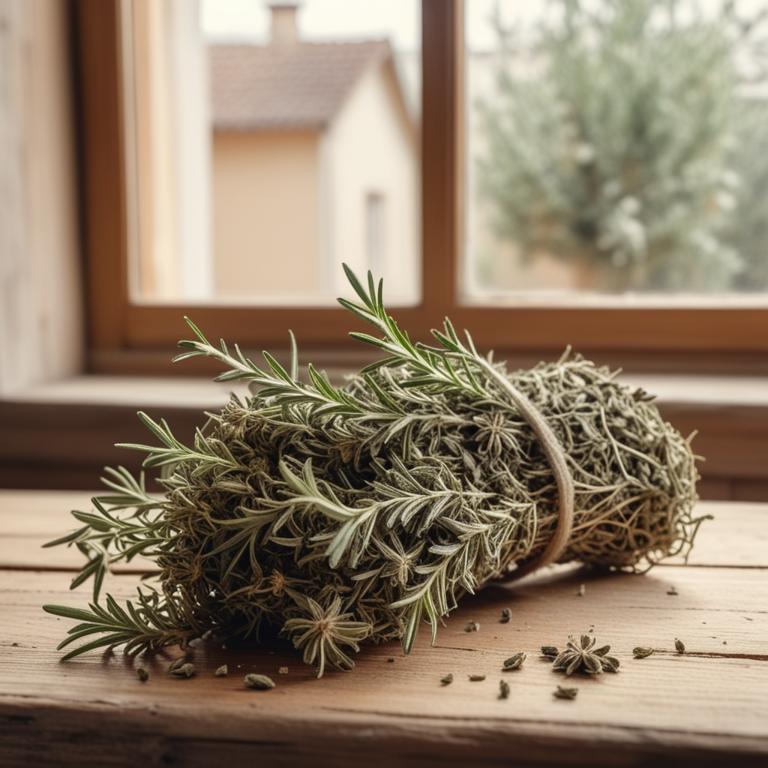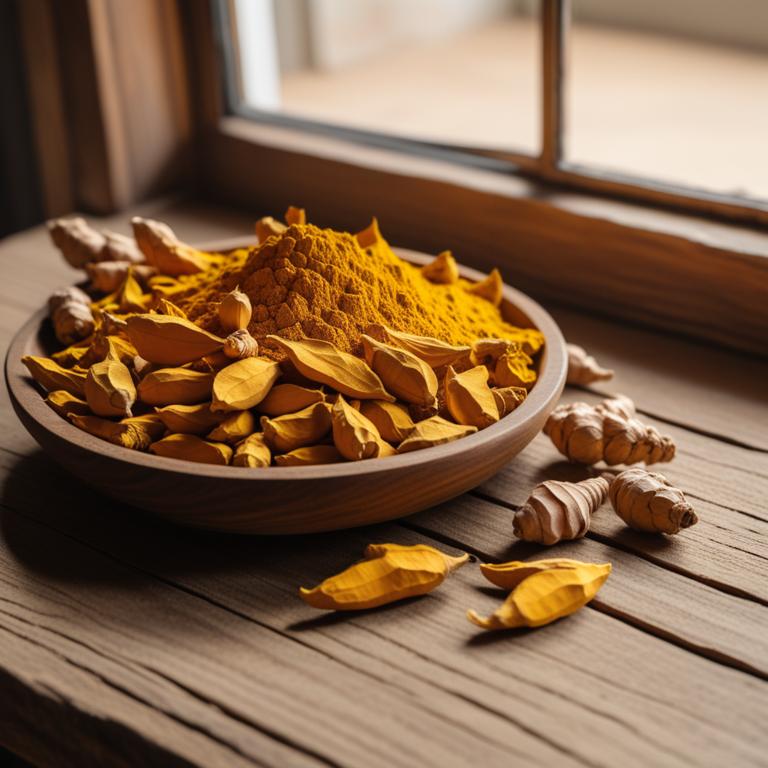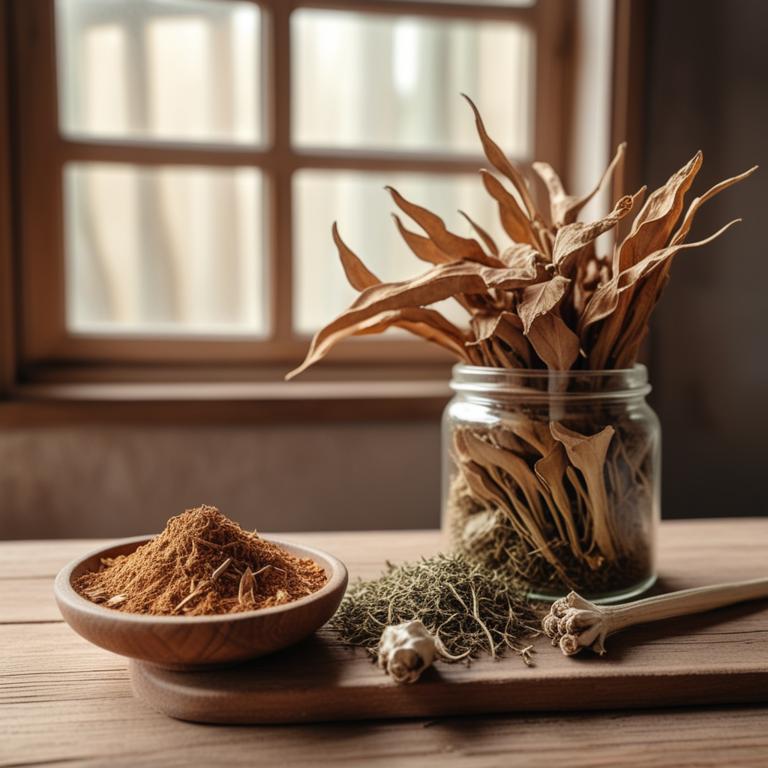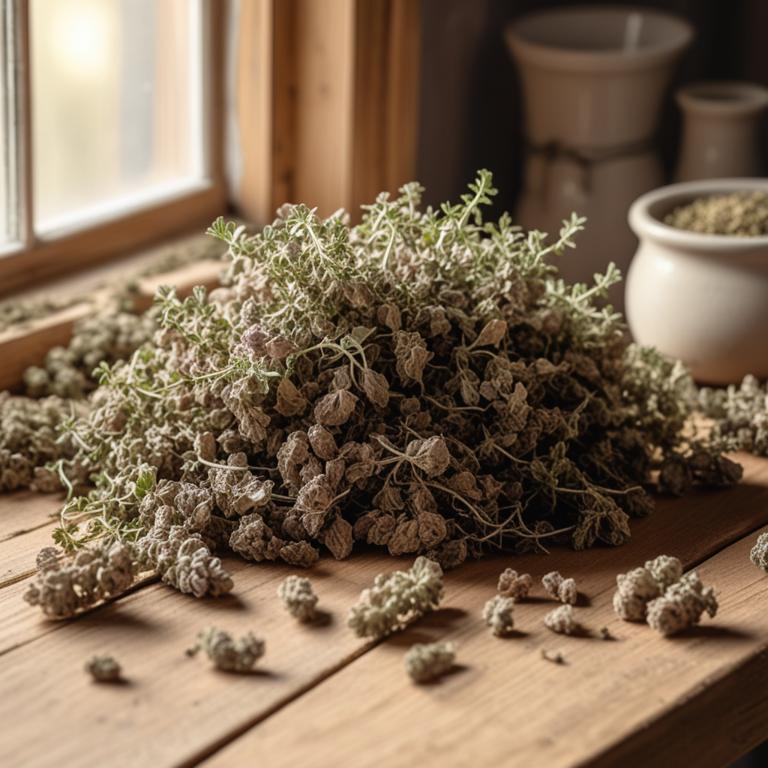Updated: Dec 1, 2024
Causes, Symptoms, and Herbal Remedies for Periodontal Disease Prevention and Management

Periodontal disease is a serious infection that affects your gums and the bones that hold your teeth in place.
If left untreated, it can cause your teeth to fall out, making it hard to eat and speak. It can also lead to bad breath, painful gums, and even heart problems. The main causes of periodontal disease are poor oral hygiene, smoking, and genetics. When you don't brush and floss regularly, bacteria can build up on your teeth and gums, leading to infection.
Smoking also damages the blood vessels in your gums, making them more susceptible to disease. Some healing herbs for periodontal disease include aloe vera, which has anti-inflammatory properties that can soothe sore gums, and tea tree oil, which has antibacterial properties that can help kill the bacteria causing the infection. You can use aloe vera gel directly on your gums, or mix tea tree oil with water to create a mouthwash. Herbal teas like sage and peppermint can also help reduce inflammation and kill bacteria in your mouth. You can drink these teas as a mouthwash or add them to your regular tea routine.
Some people also use herbal supplements like vitamin C and Echinacea to boost their immune system and fight off infection.
Table of Contents
- What factors cause periodontal disease?
- What benefits do herbs offer in the treatment of periodontal disease?
- What are the key medicinal herbs for periodontal disease prevention and treatment?
- What herbal formulas are used to combat periodontal disease?
- Are there specific herbs that should be avoided in individuals with periodontal disease?
- FAQ
What factors cause periodontal disease?
The main causes of periodontal disease are linked to a combination of factors.
Smoking is a significant risk factor, as it reduces blood flow to the gums, making them more susceptible to infection and damage. This is because smoking damages the tiny blood vessels in the gums, reducing their ability to fight off bacteria. Poor oral hygiene is another major cause of periodontal disease. When you don't brush and floss regularly, plaque builds up on your teeth, and bacteria multiply, leading to inflammation and infection of the gums. If left untreated, this can progress to periodontal disease.
Genetics also play a role in the development of periodontal disease. Some people may be more prone to gum disease due to their genetic makeup, which can affect the way their gums respond to bacteria and other factors. This means that even with good oral hygiene, some people may still be at a higher risk of developing periodontal disease. Diabetes is another underlying condition that can increase the risk of periodontal disease. People with diabetes are more prone to infections, including gum disease, due to high blood sugar levels.
This is because high blood sugar levels can damage the nerves and blood vessels in the gums, making them more susceptible to infection.
What benefits do herbs offer in the treatment of periodontal disease?
Using herbs for periodontal disease can be a great approach to managing this condition.
One of the main benefits is that they can help reduce inflammation and kill bacteria in the mouth, which are the primary causes of periodontal disease. These herbs can also prevent the formation of plaque and tartar, which can lead to gum recession and tooth loss.
Additionally, they can help improve blood flow to the gums, promoting healing and reducing pain. Some herbs have antimicrobial properties, which can help prevent the spread of infection and promote a healthy mouth environment. Furthermore, these herbs are often easily available and relatively inexpensive, making them a cost-effective option for those looking for alternative treatments.
They can also be used in combination with other treatments, such as brushing and flossing, to achieve better results.
What are the key medicinal herbs for periodontal disease prevention and treatment?

Herbs have been used for centuries to help manage periodontal disease.
One of the most effective herbs is Salvia officinalis, also known as sage. It has antibacterial properties that help kill the bacteria that cause gum infections and inflammation. Salvia officinalis also reduces inflammation and soothes the gums, making it a great natural remedy for periodontal disease. Another herb that's beneficial is Eucalyptus globulus, commonly known as eucalyptus. It has anti-inflammatory properties that help reduce swelling and pain in the gums. Eucalyptus also has antimicrobial properties that help combat the bacteria that cause periodontal disease. When used in combination with other herbs, eucalyptus can be a powerful tool in managing periodontal disease. Melaleuca alternifolia, or tea tree oil, is another herb that's commonly used to help manage periodontal disease. It has strong antibacterial properties that help kill the bacteria that cause gum infections. Tea tree oil also has anti-inflammatory properties that help reduce swelling and pain in the gums.
When applied topically, tea tree oil can help soothe and calm the gums. Ginger, or Zingiber officinale, is another herb that's commonly used to help manage periodontal disease. It has anti-inflammatory properties that help reduce swelling and pain in the gums. Ginger also has antimicrobial properties that help combat the bacteria that cause periodontal disease. When used in combination with other herbs, ginger can be a powerful tool in managing periodontal disease. Finally, Syzygium aromaticum, or clove, is another herb that's commonly used to help manage periodontal disease. It has antibacterial properties that help kill the bacteria that cause gum infections. Clove also has anti-inflammatory properties that help reduce swelling and pain in the gums. When applied topically, clove can help soothe and calm the gums. These herbs can be used in various forms, such as essential oils, teas, or capsules, to help manage periodontal disease.
However, it's always best to consult with a healthcare professional before using any new herbs or supplements.
What herbal formulas are used to combat periodontal disease?

Herbal preparations are a great way to help manage periodontal disease.
A tincture is a concentrated liquid that's made by soaking herbs in a solvent, and it's easy to apply directly to the affected gums. Decoction, on the other hand, is a liquid preparation made by boiling herbs in water, which makes the nutrients and active compounds easily accessible. Tea and infusion are similar, but they're made by steeping herbs in hot water for a shorter time, which helps preserve the delicate flavors and properties of the herbs.
Taking herbal preparations in capsule form can be more convenient, especially if you're on-the-go. Certain herbs like calendula, aloe vera, and tea tree oil have anti-inflammatory and antimicrobial properties that can help soothe and heal gums. They can also reduce swelling, kill bacteria, and promote healthy gum tissue. These properties can help to reduce the severity of periodontal disease symptoms and even help to prevent its progression.
Note: However, it's essential to consult with a healthcare professional before using any herbal preparations, especially if you're already taking medications or have underlying health conditions.
Additional Resources:
Are there specific herbs that should be avoided in individuals with periodontal disease?
If you have periodontal disease, it's best to limit your use of certain herbs that could make the condition worse.
Thyme (Thymus vulgaris), for example, is known to dry out the mouth, which can worsen gum problems by reducing saliva production. This can lead to a build-up of bacteria in the mouth, causing inflammation and infection. Rosemary (Rosmarinus officinalis) is another herb to use with caution, as it can also reduce saliva production and dry out the mouth. This can be especially problematic if you're already struggling with gum disease.
St. John's Wort (Hypericum perforatum) can interact with certain medications used to treat gum disease, such as antibiotics and blood thinners. This can reduce their effectiveness and make it harder to manage the condition. Cinnamon (Cinnamomum verum) may be beneficial in small amounts, but excessive consumption can be irritating to the gums and make them more sensitive. This can cause discomfort and make it harder to eat and talk. Ginkgo biloba can thin the blood and increase the risk of bleeding, which is a serious concern for people with gum disease.
Gum disease already increases the risk of bleeding, so adding ginkgo biloba to the mix can be risky.
FAQ
Are there any specific herbs that can prevent periodontal disease?
Ginger has natural anti-inflammatory properties that may help prevent periodontal disease.
It reduces swelling and kills bacteria in the mouth. Turmeric also contains curcumin, which has antibacterial and anti-inflammatory effects, helping to prevent gum disease.
These herbs can be used as supplements or added to food and drinks.
Is it safe to use herbal remedies for periodontal disease during pregnancy?
Using herbal remedies for periodontal disease during pregnancy is a concern.
Some herbs can affect the baby's development or cause labor. For example, ginger and saw palmetto may slow down labor, while pennyroyal can cause miscarriage.
It's essential to carefully consider any potential risks before using herbal remedies.
Are there any herbs that can reduce the frequency of periodontal disease?
Certain herbs may help reduce the frequency of periodontal disease.
Turmeric, with its anti-inflammatory properties, and clove oil, which has antibacterial effects, have been studied for their potential benefits.
Additionally, some research suggests that green tea, rich in antioxidants, may help prevent gum disease by reducing inflammation and promoting healthy gum tissue.
Related Articles

Natural Dermatitis Treatment: Causes and Medicinal Herbs

Nose Bleeding: Causes and Alternative Therapies with Medicinal Herbs

The Role of Medicinal Herbs and Herbal Preparations in Lice Treatment

Effective Medicinal Herbs and Herbal Preparations to Prevent Hair Fall

Cold Sore: Understanding Causes, Medicinal Herbs, and Natural Remedies for Relief






